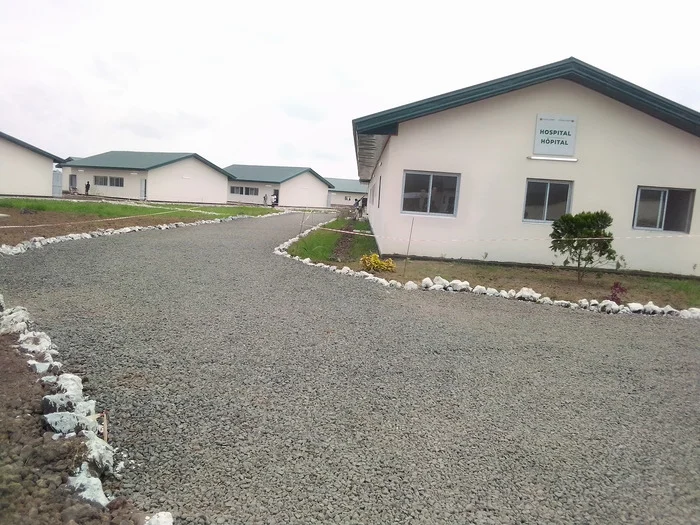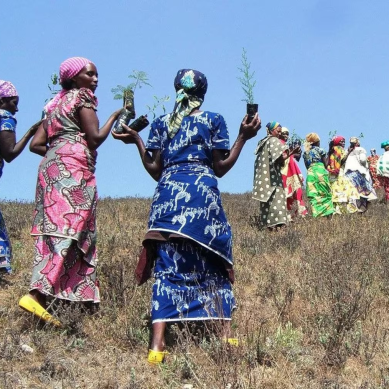
Ambazonia fighters – separatist insurgency in anglophone Cameroon – many of whom had missed critical years of schooling, were encouraged to surrender and take advantage of skills programmes – from computer training to poultry farming and tailoring.
The idea was that they would then graduate as young entrepreneurs, capable of starting businesses on their own. Progress o the realisation of this promise has been slow.
Job prospects are extremely bleak for most ex-combatants, and skills training would give them a leg up. “The national economy – especially in the conflict regions – is floundering, so there aren’t jobs available for these former fighters,” explained Chris Fomunyoh, regional director at the National Democratic Institute for International Affairs think tank.
Hundreds of young men like Ngah took up the government’s demobilisation offer when it was first made in 2018. But a year later, ex-combatants in the centres in Buea and Bamenda began to complain about the poor living conditions, the lack of training opportunities, and uncertainty about when they could leave.
Frustrations boiled over: There were protests in Buea in January 2021, and again in February and March. Residents of the centre in Bamenda followed suit, with the ex-combatants there also urging the government to fulfil the commitments it had made.
Fomunyoh thinks the programme is back-to-front: Demobilisation, he suggested, should come at the end of a formal peace process, “When communities and the country are in a state of recovery, reconciliation, and reconstruction”. While lives may have been saved by some fighters giving up their guns, the overall programme “looks like a futile exercise for now”, he added.
Ngah still believes he made the right decision in surrendering. “At least I’m alive,” he said. “I could have long been dead, like most of my friends who stayed behind.”
He has been in contact with other fighters. They were initially keen to quit but eventually demurred due to uncertainty around life at the centre, and fear of being labelled a so-called “black leg” – a “traitor” – by their comrades and possibly killed.
Elie Smith, secretary-general of the All-Anglophone General Conference (AGC) – a network of religious organisations – has been instrumental in helping ex-fighters leave the battlefield. “When a fighter wants to surrender, he or she secretly reaches out to a pastor, an imam, a priest or any other religious authority in the area for guidance,” he explains.
Of those who do make it out, only a few opt to enter the DDRCs, said Smith. The majority prefer to relocate to other parts of the country, searching for better opportunities or a more anonymous life. There is no clear idea on numbers of those who have quit clandestinely.
Helping the fighters is a risk. Smith and his team are branded as traitors by the secessionist movement and have received death threats. The late Cardinal Christian Tumi, one of the co-founders of the AGC – and a vocal supporter of dialogue to end the war – was kidnapped for 24 hours by separatist fighters in 2020 before being released.
Ngah knows that when he eventually leaves the Buea centre, he won’t immediately be able to return to his home in the Ndian Division of the Southwest region. Reconciling ex-fighters with their former communities remains an uphill task for the government’s demobilisation programme.
“Some of these armed men committed [atrocities], often abusing the same communities that supported them,” said Ntui. “There would have to be proper programmes to address not only [the ex-fighters], but the large number of civilian victims who need healing after experiencing conflict crimes first hand.”
Despite hefty criticisms of the demobilisation programme, the government remains wedded to it, as a viable hearts and minds approach to preserving the country’s “sacred union”, while the stick of military measures is simultaneously wielded. In April 2021, a new “ultra-modern” centre in Bafut, in the Northwest, was opened. That will be followed by brand new facilities in Misselele, in the Southwest, and Mémé, in the Far North.
All ex-fighters will eventually be moved to the new sites, and Ngah and his comrades are excited about the prospect. “We’ve been told we’ll have comfortable dormitories [in Misselele] and standard workshops to learn trades of all types,” he said.
“I will finally be able to undergo my training in poultry, so that upon graduation I can fulfil my dream of becoming a poultry farmer.”
- The New Humanitarian report











